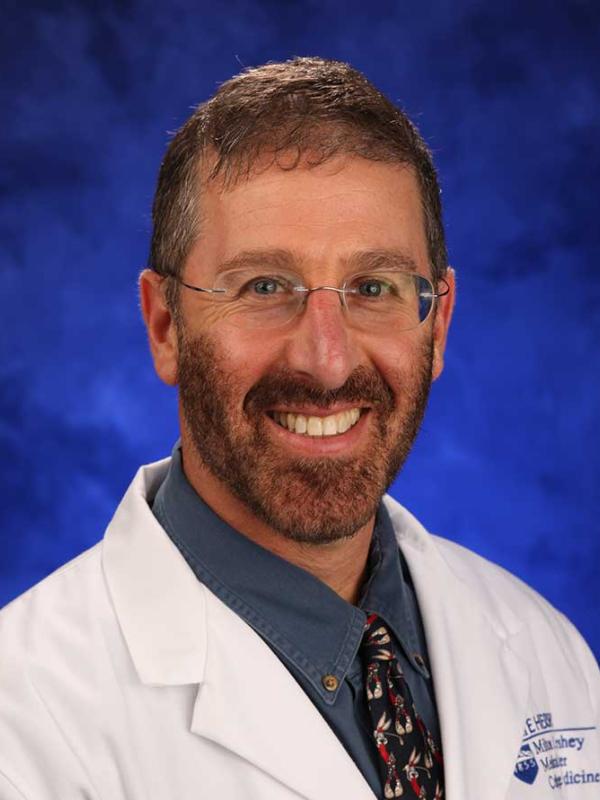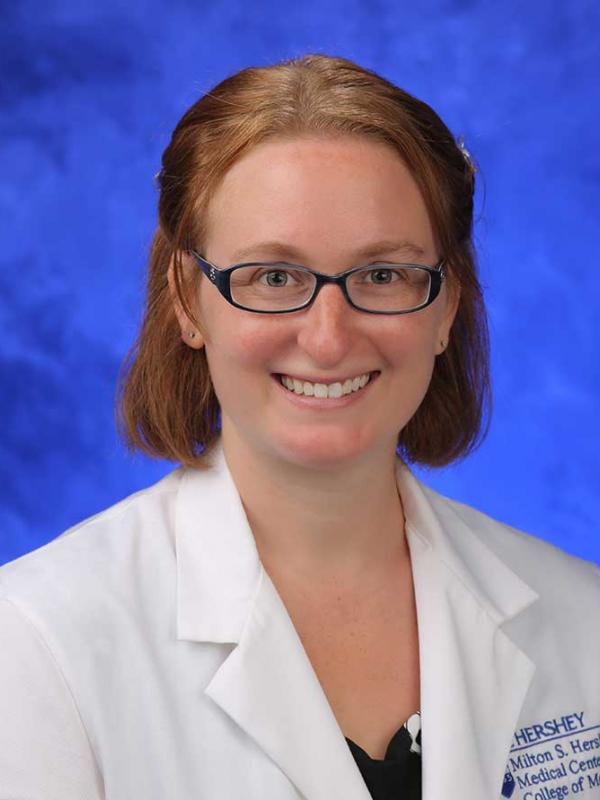Grant funding supports College of Medicine research on diabetes, addiction, other medical conditions
During August and September 2020, Penn State College of Medicine received 129 grants totaling more than $38 million for research. Faculty, staff and students will use the funds to investigate the causes of Alzheimer’s disease, how federal and state policies affect health outcomes and new treatments for substance use disorders. Others will purchase new equipment for research, evaluate end-of-life care decision making and coordinate data processing for a large research study.

Ping He, MD, PhD
Red blood cell released ATP in disturbed blood flow-initiated site-specific vascular inflammation and atherosclerosis
Investigator: Ping He, MD, PhD – professor of cellular and molecular physiology
Grant amount: $1,080,489 (parent grant: $684,680 and supplemental funds: $395,809; total $3,132,701 anticipated through July 2023)
Awarded by: National Heart, Lung and Blood Institute
Goal: Vascular inflammation and atherosclerosis, or the buildup of fats, cholesterol and other substances in and on artery walls, often occurs at vascular regions that have different blood flow patterns. This study will investigate how blood flow changes affect red blood cells and subsequently contribute to vascular inflammation and atherosclerosis with systemic risk factors. The supplemental funds will be used to research how atherosclerotic plaques affect blood flow to the brain, resulting in brain tissue damages, neurodegeneration and onset of Alzheimer’s disease.

Scot Kimball, PhD
Metabolic phenotyping system
Investigator: Scot Kimball, PhD – professor of cellular and molecular physiology
Grant amount: $464,064
Awarded by: Office of the Director, National Institutes of Health
Goal: These funds will be used to purchase two new pieces of equipment.
One tool measures food and water intake, energy expenditure, body weight, body temperature and movement in research animals. The second can measure body composition.
The instruments will enhance ongoing and future research projects related to obesity, type 2 diabetes, cardiovascular disease, addiction, cancer and other conditions.

Benjamin Levi, MD, PhD
Choosing an effective health care spokesperson: an interactive intervention
Investigators: Benjamin Levi, MD, PhD – professor of humanities and pediatrics; and Michael Green, MD, MS – professor of humanities and medicine
Grant amount: $243,270 ($455,995 anticipated through July 2022)
Awarded by: National Institute of Nursing Research
Goal: This research project will use an interactive game to help people choose better spokespersons for their health care decisions.
As the number of older Americans increases, appealing interventions are needed to help this population choose the right person to make medical decisions on their behalf.

Michael Green, MD, MS

Cynthia Chuang, MD, MSc
Impact of state and federal contraceptive coverage policies on contraceptive use, costs and pregnancy outcomes
Investigator: Cynthia Chuang, MD, MSc – chief of the Division of Internal Medicine, Kenneth V. and Eleanor M. Hatt Faculty Fellow in Internal Medicine, professor of medicine, public health sciences and obstetrics and gynecology
Grant amount: $359,174 ($1,291,699 anticipated through June 2024)
Awarded by: Agency for Healthcare Research and Quality
Goal: This project aims to understand how state and federal policies requiring health insurers to cover prescription contraceptives have affected out-of-pocket spending on contraception and contraceptive use, pregnancy spacing, adverse pregnancy outcomes and other public health outcomes. Chuang hopes the data shows how policy impacts efforts to address the long-term public health policy goal of reducing unintended pregnancies and their consequences.

Susan Hafenstein, PhD
Structural studies of human papillomavirus
Investigator: Susan Hafenstein, PhD – professor of medicine, biochemistry and molecular biology and microbiology and immunology
Grant amount: $775,542 ($3,760,598 anticipated through July 2025)
Awarded by: National Institute of Allergy and Infectious Diseases
Goal: Hafenstein will use advanced microscopy and high-resolution imaging techniques to understand how human papillomaviruses interact with human cells during an infection.
The goal is to identify new targets and strategies for preventing infection from the viruses, which can cause cervical, anal and head and neck cancers.

Jennifer Kraschnewski, MD, MPH
A patient-centered PaTH to addressing diabetes: impact of state health policies on diabetes outcomes and disparities
Investigator: Jennifer Kraschnewski, MD, MPH – professor and vice chair for research in the Department of Medicine, professor of public health sciences and pediatrics
Grant amount: $484,642 ($2,840,131 anticipated through May 2022)
Awarded by: Patient-Centered Outcomes Research Institute
Goal: Patients with diabetes are at increased risk of death from COVID-19. Kraschnewski will use these funds to enhance an existing project and explore the effectiveness of telemedicine approaches for providing outpatient care for patients with or at high risk of type 2 diabetes.

Leslie Parent, MD
Molecular mechanisms of retroviral Gag-RNA interactions in virus assembly
Investigator: Leslie Parent, MD – associate vice president for health sciences research at Penn State, vice dean for research and graduate studies at Penn State College of Medicine and professor of medicine and microbiology and immunology
Grant amount: $450,504 ($1,727,032 anticipated through June 2024)
Awarded by: National Institute of General Medical Sciences
Goal: This award will allow Parent and members of her lab to further investigate how retroviruses, which can cause cancers and severe immunodeficiency diseases in animals and humans, replicate. They will study how a protein, Gag, selects viral genetic material for replication in an infected cell and transports it for further packaging and export from the cell.
Combinatorial approaches to improved blood-contacting polymer biomaterials
Investigator: Christopher Siedlecki, PhD – Jane A. Fetter professor of surgery and professor of biomedical engineering
Grant amount: $651,068 ($2,553,920 anticipated through July 2024)
Awarded by: National Heart, Lung and Blood Institute
Goal: The formation of blood clots and infection are risks to using advanced medical devices that come in contact with blood. Siedlecki aims to create and test new biomaterials that mimic multiple features of native blood vessels and will be compatible with blood for use in medical devices.

Philippe Haouzi, MD
Treatment of fentanyl overdose-induced respiratory failure by low-dose dexmedetomidine
Investigator: Philippe Haouzi, MD, PhD – professor of medicine
Grant amount: $708,424
Awarded by: National Heart, Lung and Blood Institute
Goal: Opioid overdose can lead to death due to impaired respiratory neuron function and the resulting inability to breathe.
Haouzi will use the funds to investigate if a drug called dexmedetomidine can restore respiratory function and improve rates of survival following an opioid overdose.

Lauren Van Scoy, MD
Engaging underserved communities in end of life conversations: a cluster, randomized controlled trial
Investigator: Lauren Van Scoy, MD – associate professor of medicine, humanities and public health sciences
Grant amount: $710,835 ($3,398,440 anticipated through June 2025)
Awarded by: National Center on Minority Health and Health Disparities
Goal: African American and Hispanic individuals often receive low-quality end-of-life care and are three times more likely than white Americans to receive costly and burdensome treatments that are unable to reduce suffering or improve quality of life. These health inequities can be reduced by advanced care planning – the process of discussing one’s wishes with loved ones and clinicians. Van Scoy is using these funds to establish a national, 75-site, randomized and controlled trial to evaluate if playing a conversation game that discusses end-of-life issues can increase advanced care planning behaviors in underserved communities more-so than traditional interventions.

Scott Bunce, PhD, MA
Polysomnography assessment during GLP-1R agonist treatment of opioid use disorder
Investigator: Scott Bunce, PhD, MA – associate professor of psychiatry and behavioral health
Grant amount: $351,281 (part of a total $5,290,681 ongoing project with Patricia “Sue” Grigson, PhD, professor and chair of the Department of Neural and Behavioral Sciences)
Awarded by: National Institute on Drug Abuse
Goal: Although sleep problems are a common and undertreated symptom in substance use disorders that can increase vulnerability to relapse, there are currently no approved medications to treat sleep problems in this population. These funds will contribute to an ongoing study that is investigating whether an already-approved “satiety” medication can help reduce relapse by craving – and re-regulating disrupted sleep – in people struggling with opioid addiction. Investigators will measure more than forty study participants to see if the medication can improve their sleep while reducing their craving for opioids.

James Connor, MS, PhD
HFE SNP effect on Alzheimer’s regional brain susceptibility
Investigators: James Connor, MS, PhD – distinguished professor and vice chair for research in the Department of Neurosurgery and professor of neural and behavioral sciences and pediatrics; and Qing Yang, PhD – professor of radiology and neurosurgery
Grant amount: $240,327 ($440,016 anticipated through May 2022)
Awarded by: National Institute on Aging
Goal: Iron is necessary for many cellular processes.
The researchers will investigate how genetic mutations to a gene that regulates iron activity may be linked with the development of Alzheimer’s disease.

Qing Yang, PhD

Christopher Niyibizi, MSc, PhD
Evaluation of pigment epithelium derived factor and its derived peptide for bone healing
Investigator: Christopher Niyibizi, MSc, PhD – associate professor of orthopaedics and rehabilitation and biochemistry and molecular biology
Grant amount: $214,077 ($392,475 anticipated through July 2022)
Awarded by: National Institute of Arthritis and Musculoskeletal and Skin Diseases
Goal: Osteogenesis imperfecta type 6 is a disease that results in weakened bones that can break easily.
Niyibizi will investigate whether two biomolecules have the ability to accelerate the healing of femur fractures.

Vernon Chinchilli, PhD
Data Coordinating Center for the Type 1 Diabetes in Acute Pancreatitis Consortium (T1DAPC)
Investigator: Vernon Chinchilli, PhD – distinguished professor and chair of the Department of Public Health Sciences
Grant amount: $2,322,833 ($11,426,784 anticipated through July 2025)
Awarded by: National Institutes of Health
Goal: Chinchilli will use these funds to coordinate Penn State College of Medicine’s role as the Data Coordinating Center for the Type 1 Diabetes in Acute Pancreatitis Consortium – an observational study across 10 clinical centers that aims to identify early biomarkers, clinical signs, immune and genetic risk factors, susceptible subgroups and how pancreatitis may contribute to the development of type 1 diabetes.
Other awards
- See grant highlights from previous months here.
- See details on grants awarded to the College of Medicine from 2017 to present here.
If you're having trouble accessing this content, or would like it in another format, please email the Penn State College of Medicine web department.
